european union
Latest
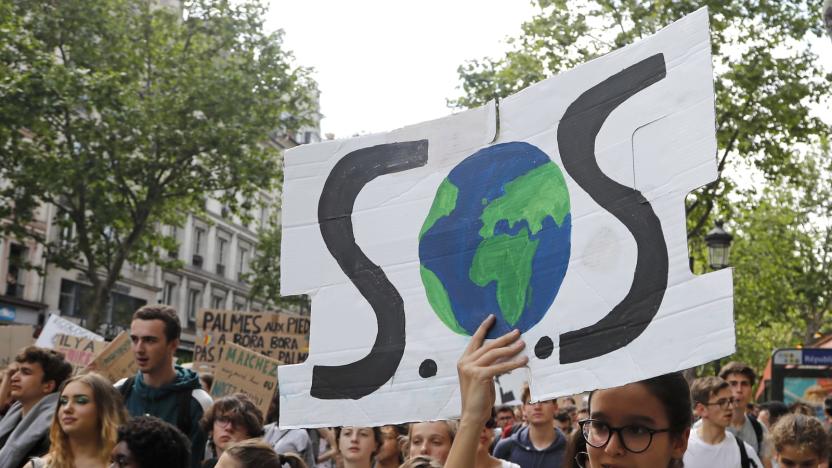
EU lending bank aims to cut funding for fossil fuel projects by 2020
The European Union has some very long-term environmental goals, but it might not wait around to make some crucial changes. The Guardian has seen proposals from the EU's lender, the European Investment Bank, that would bar funding for any energy infrastructure project that depends on fossil fuels after 2020. EU members counting on funding for gas pipelines and similar projects would have to either scramble for alternative funding next year or reconsider their plans.

Amazon won't have to offer a phone helpline in the European Union
Don't go looking for a customer support phone number for Amazon in Europe -- you probably won't find one. The Court of Justice of the European Union has ruled that Amazon isn't obligated to provide a phone helpline to customers in the region, rejecting Germain claims that the company's site violated national consumer protection laws by failing to clearly display a support phone number. An online shopping platform like Amazon is "not obliged in all cases" to make a phone number available, according to the judges.

The EU's election interference alert system isn't working properly
The European Union was quick to report online interference in its recent elections, but the system designed to catch that interference apparently needs some improvement. The New York Times has learned through records and interviews that the EU's Rapid Alert System hasn't been very effective in aggregating meddling data or transmitting alerts. Most member states haven't contributed to its database, and what data is there tends to be a "mishmash" that may go unanalyzed. Disagreements over the seriousness of interference attempts have also led officials to avoid issuing alerts.

European regulators demand changes to 737 Max autopilot
It's not just American officials who think Boeing's 737 Max software needs more polish. A Bloomberg source said that the European Union Aviation Safety Agency (EASA) has told Boeing to make five changes to the airliner before it can return to service. They're mostly consistent with the FAA's requests, including improvements to the angle of attack sensors, training, manual trim controls and a software flaw linked to a lagging chip. However, the EU regulators also want Boeing to address a previously unmentioned issue with the autopilot failing to switch off in some emergencies -- it might not give pilots enough time to prevent a stall.
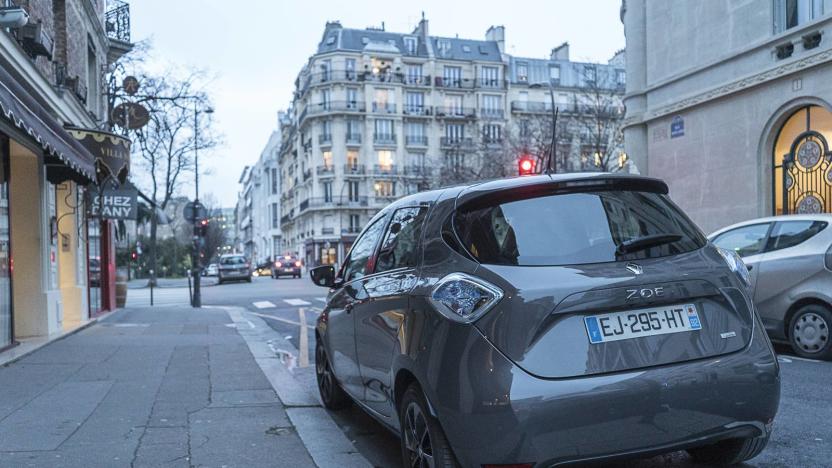
New electric cars in Europe have to make artificial noises
Don't be surprised if you hear more of a racket from electric cars in Europe. As of July 1st, new four-wheeled EV models in the European Union require a noise-emitting device (Acoustic Vehicle Alert System, or AVAS) that kicks in whenever the vehicle is driving below 19km/h (12MPH). The system will theoretically prevent pedestrians and cyclists from being caught unawares by cars that would otherwise be near-silent. It's not a particularly irksome sound, as you can find out below, but it could stop you from crossing the street when there's a less-than-attentive driver.
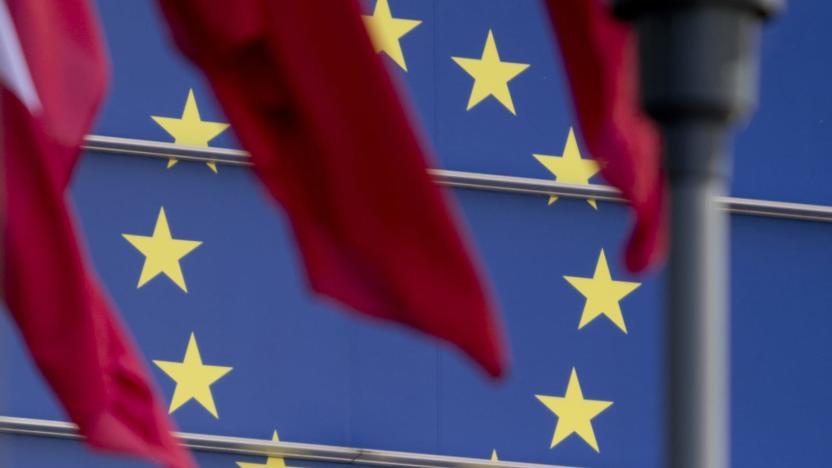
EU says Russia conducted 'sustained' election interference campaign
The European Union already suspected that Russia was trying to disrupt its parliamentary elections through hacks and other online interference, and now it's directly pointing a finger at the country. EU officials have published a report accusing Russia of orchestrating a "continued and sustained" misinformation campaign during the late May election similar to ones the country tried in the US, France and other countries. It used fake stories to "promote extreme views," stoke political tensions and, sometimes, discourage voter turnout.
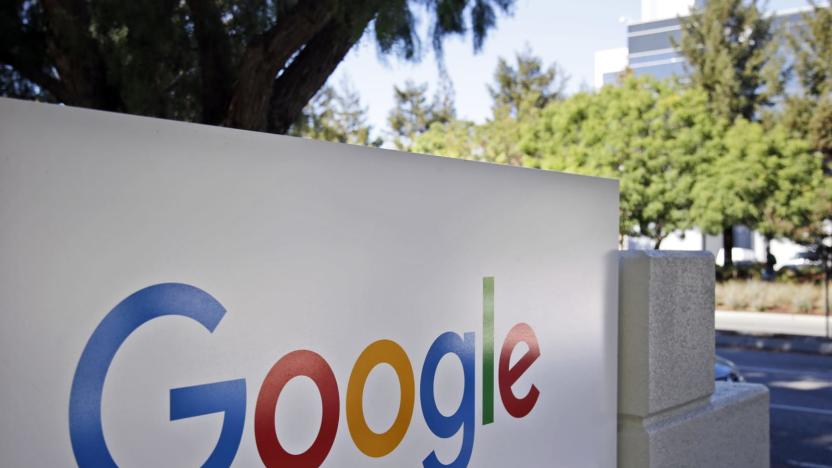
Google appeals $1.7 billion EU fine over restrictive ad contracts
As was expected, Google is appealing a €1.49 billion ($1.7 billion) fine laid against it by the European Commission related to its AdSense advertising business. Antitrust officials found that, in contracts with major sites between 2006 and 2016, Google included restrictive contracts that could be seen as it trying to muscle rivals out of the market.
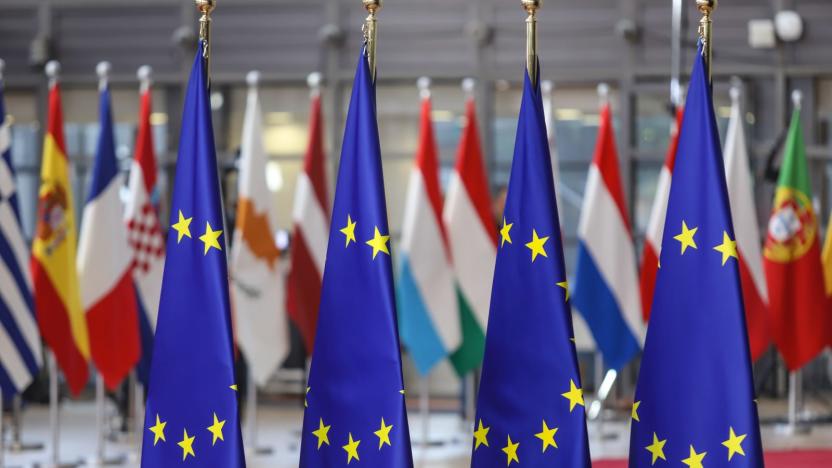
Poland challenges EU's new copyright law over censorship fears
The EU's contentious copyright law is already facing some opposition from one of its existing members. Poland has submitted a complaint to the European Court of Justice arguing that the law's requirement for filtering content had the potential for censorship. This would violate both the Polish constitution as well as EU treaties, Deputy Foreign Minister Konrad Szymanski told TVP Info.

Group accuses EU internet providers of violating net neutrality
The European Union has had net neutrality regulations in place since 2016, but some are concerned that internet service providers are playing fast and loose with those rules. A group of 45 advocate organizations, companies and individuals (including the Electronic Frontier Foundation) have sent a letter to EU officials accusing 186 ISPs of jeopardizing net neutrality though the use of deep packet inspection, which verifies the content of data traffic well beyond the basics. Existing rules allow carriers to shape traffic to optimize their network resources, but at least some ISPs are using this for "differentiated pricing," prioritization or throttling.

EU approves cyber-attack sanctions ahead of election
The European Union has agreed to an automatic set of sanctions to punish any future cyber attackers. Just a week ahead of the EU Parliament elections, officials in Brussels on Friday approved a cyber sanctions regime that would impose asset freezes and travel bans on individuals. While no specific targets have been named yet, the EU hopes the new system will make it easier for the 28 member nations to act quickly in the event of a cyber attack.
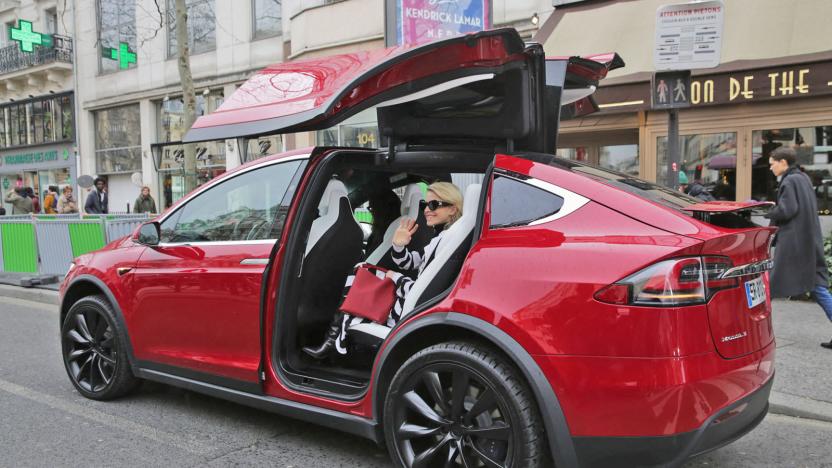
Tesla adjusts Autopilot to comply with new EU regulations
Tesla will push an updated Autopilot in Europe that scales back on a couple of functions in order to comply with new regulations. The changes will require faster lane changes and limit how far you can turn the steering wheel on Autosteer. Electrek reports that while Tesla's Autopilot was approved under older rules, it had to be dialed back in order to comply with the new UN/ECE R79 regulation on driver assistance systems. The update only impacts Model S and Model X vehicles; Model 3 already complies with the new rules.

EU set to investigate Apple over Spotify's competition claims
The European Union might just believe that Spotify's complaint against Apple has some merit. Financial Times sources have claimed that EU competition commissioners have decided to launch an antitrust investigation into allegations that Apple unfairly hinders Spotify and other rivals to Apple Music through App Store policies. The investigation would start in the "next few weeks," according to the outlet.

Facebook opens 'war room' to fight meddling in EU election
Facebook is now using "war room" to fight election interference for most of Europe. The social network has debuted a 40-person team devoted to tracking and fighting misinformation campaigns ahead of the European Union election on May 20th. The team, based in Facebook's European headquarters in Dublin, includes a mix of data scientists, engineers and security experts whose goal is to intercept bogus content before it has much opportunity to spread.
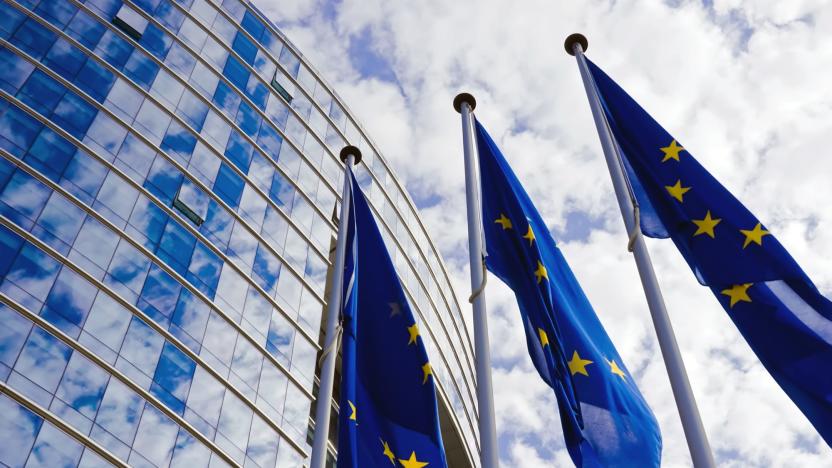
EU law could fine sites for not removing terrorist content within an hour
The European Union has been clear on its stance that terrorist content is most harmful in the first hour it appears online. Yesterday, the European Parliament voted in favor of a new rule that could require internet companies to remove terrorist content within one hour after receiving an order from authorities. Companies that repeatedly fail to abide by the law could be fined up to four percent of their global revenue.
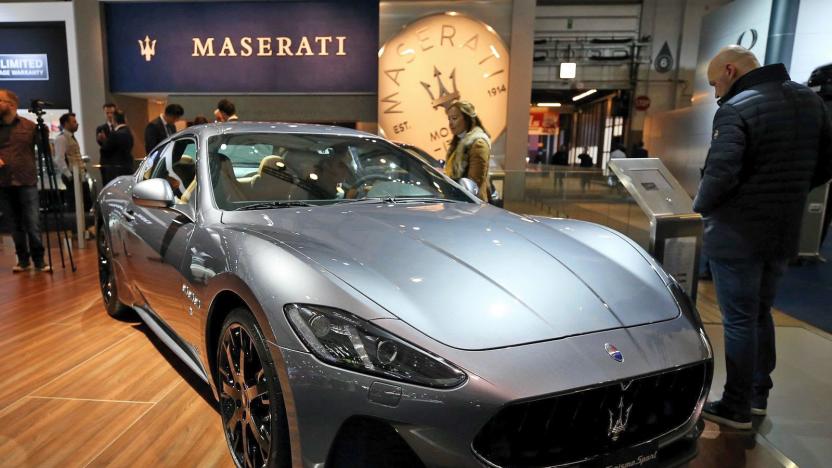
Fiat Chrysler will pay Tesla to avoid EU emissions fines
Environmental regulations can create strange bedfellows, it seems. The Financial Times has learned that Fiat Chrysler Automobiles will pay Tesla hundreds of millions of euros (specific numbers aren't available) to pool the EV brand's cars with its own fleet and avoid fines for violating stricter EU emissions rules in 2020. The move should help FCA meet the EU's CO2 emissions target of 95g per kilometer by lowering its average from a higher-than-usual 123g. Fiat Chrysler has been relatively slow to adopt electric and hybrid cars -- this buys it time to catch up without having to take many (if any) radical steps.

Google will ask European Android users what browser they want to use
After the European Commission slapped Google with a $5 billion fine for antitrust violations, the tech giant has been trying to keep its practices in check. Its latest move? To ensure that European users know they can install and use browsers and search engines other than Chrome and Google. The tech giant will start asking both current and new users in the region their preferred browser and search applications. While Android users can download almost any app they want, the company is likely doing this to show the EU its "continued commitment to operating in an open and principled way." Perhaps in an effort to avoid any more fines in the future.

EU and ESA sign deal to keep ahead of global space competition
The European Space Agency has lined up several projects in the next few years, from its wind satellite aiming to go up in 2017 to a 2020 ExoMars expedition to follow up on the missing Schiaparelli probe that likely botched its landing last week. The group pursues mostly neutral research and development missions with loose ties to the European Union, but both groups signed an agreement today outlining future ambitions and plans to protect and enrich mutual interests. The Space Strategy for Europe declaration is a mix of commercial coverage and deployment of defensive assets -- aspirations to keep the continent's governments and industry competitive in space technology.

Google got some 'right to be forgotten' decisions wrong, says UK
It's been almost a year since the European Union ruled in favour of the "right to be forgotten," giving anyone permission to request that specific links be removed from Google's search results. Since then, the company has dealt with over 250,000 applications from the public (and rejected 59 percent of them). Now, the BBC reports that the UK Information Commissioner's Office (ICO) is talking to Google about 48 cases it believes were ruled incorrectly. It's a small number, but one that highlights the difficulties that Google faces with interpreting the EU's ruling and judging individual requests.

The EU is investigating Amazon for a potentially illegal tax deal
After setting Apple firmly in its crosshairs, the European Commission is now targeting retail giant Amazon's tax dealings. In a press release this morning, the Commission announced it's opened an "in-depth investigation" into the company's tax status in the tiny country of Luxembourg -- home to Amazon's European subsidiary. Since 2003, Amazon has recorded the majority of its regional profits in the country, but those profits are not taxed there. As with the aforementioned Apple probe, the Commission believes that the favorable tax deal is tantamount to illegal state aid, and will now investigate Amazon and Luxembourg in an attempt to prove that. So far, Luxembourg has failed to fully comply with requests for further information, but with the Commission turning up the heat, it's unlikely that either party will be able to hide from the investigation.

EU Commission holds meeting over free-to-play concerns
The European Commission is meeting with member state authorities and companies like Apple and Google with an eye to enforcing stronger regulation of free-to-play games. The European Union's executive body says it's concerned a substantial number of games are marketed as free but in truth entail in-app purchases that can be costly, a system that children are "particularly vulnerable to." In a press release, the European Commission outlined the four consumer-raised issues that will be discussed in detail at the meeting: Games advertised as "free" should not mislead consumers about the true costs involved; Games should not contain direct exhortations to children to buy items in a game or to persuade an adult to buy items for them; Consumers should be adequately informed about the payment arrangements and purchases should not be debited through default settings without consumers' explicit consent; Traders should provide an email address so that consumers can contact them in case of queries or complaints.








